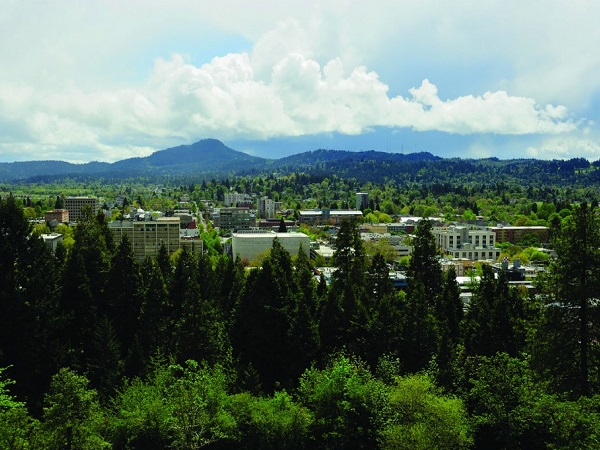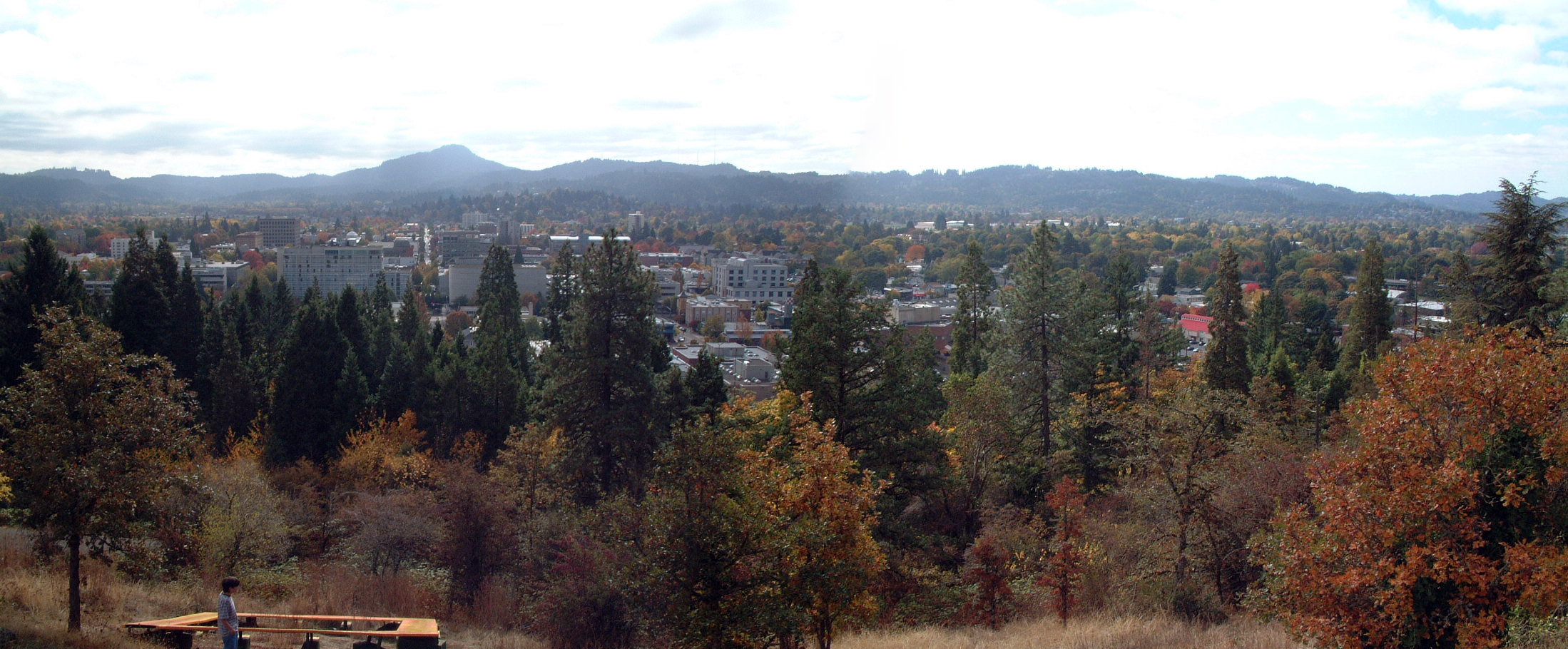Apply now to join our next cohort of Community Science Fellows and Community Leads!

ICLEI member Eugene, Oregon is looking to set a greenhouse gas emissions goal consistent with a global concentration of only 350ppm.
Eugene Sustainability Office (2016). Methodology for Establishing a Community Carbon Budget for Eugene. Eugene, Oregon.
Rice, Andrew and Matt McRae (2016, December). Development of a 350ppm community carbon budget in Eugene, Oregon. Poster session presented at the meeting of the American Geophysical Union, San Francisco, CA.
Eugene has a community climate and action plan which includes reducing greenhouse gas emissions, fossil fuels, and strategies to adapt to climate change. In July 2014, the city of Eugene passed a climate recovery ordinance and put it into city code. This ordinance lent weight to climate action planning and implementation activities.
When the leaders of the City of Eugene, Oregon, decided to set the most ambitious green house gas reduction targets in the US, they wanted to ensure that the targets were based on the best, most up-to-date science. And when the City’s sustainability director exhausted the City’s internal expertise on the topic, Thriving Earth Exchange helped him connect to a local scientist with world-class credentials from nearby Portland State University. Together, they are developing bold and scientifically sound greenhouse gas targets and are on track for adoption by city council in September of 2015
Eugene has a community climate and action plan which includes reducing greenhouse gas emissions, fossil fuels, and strategies to adapt to climate change. In July 2014, the city of Eugene passed a climate recovery ordinance and put it into city code. This ordinance lent weight to climate action planning and implementation activities.
Through TEX partner, ICLEI – Local Governments for Sustainability, TEX matched city leaders with a scientist to participate in setting the 350 ppm and ensure the targets were based on sound science. TEX also linked Eugene to partners who could help with advocacy.
For more background about setting this ambitious target, please see TEX Climate Podcast, Part 1 and Part 2.

Eugene’s climate recovery ordinance has received overwhelming support from a number of sources. The City Council has already met several times to discuss the details of this ordinance, and these meetings can be viewed online here. On Monday, February 22nd at 5:30PST, Eugene’s City Council will meet once more. For those curious about Eugene’s progress, the session will be streamed online here.
On the 22nd, Dr. Andrew Rice, the TEX scientist matched to this project, will field questions on the new emissions target. As a physicist at Portland State University, Dr. Rice was able to provide an expert review of Eugene’s 350 target, and will voice his support at the upcoming work session.
The City Council will not be asked to make a decision at the work session on the 22nd. However, progress made so far has been very promising. Eugene has 159,000 residents, all of whom will be partners in meeting the new targets. If adopted, there is a great deal of potential to make a difference. Perhaps Eugene’s ambitious targets may inspire other communities to launch ambitious goals for greenhouse gas reductions.
Matt McRae is the Climate and Energy Analyst for the City of Eugene. His work centers on implementing Eugene’s Community and Internal Climate Action Plans. He manages greenhouse gas inventories, oversees the update and implementation of Eugene’s Natural Hazards Mitigation Plan, and developed Eugene’s 20-minute neighborhoods assessment. Matt has worked for the City of Eugene since 2002 and prior to that worked for the National Park Service for nine years. Matt has a B.S. in Environmental Studies from the College of Natural Resources at Utah State University.
Dr. Andrew Rice is an Associate Professor in the Department of Physics at Portland State University where he teaches physics and applied science courses to undergraduate and graduate students. His research is in the area of climate science with a focus on creating a better understanding of sources and sinks of atmospheric radiative trace gases and their trends using naturally occurring isotopes. Some of his recent work is also directly policy-informative: in 2010 as an author of the first Oregon Climate Change Assessment Report as part of OCCRI, and more recently in 2014 as part of a Oregon State Legislative study of the economic and emissions impacts of a carbon tax. Dr. Rice is hoping to contribute to this work through his scientific expertise on regional and global greenhouse gas budgets and efforts to mitigate their emissions.


ICLEI USA – Local Governments for Sustainability and American Geophysical Union (AGU)’s Thriving Earth Exchange (TEX) partnered to advance knowledge and practices contributing to climate resilient communities across the United States.
(c) 2024 Thriving Earth Exchange